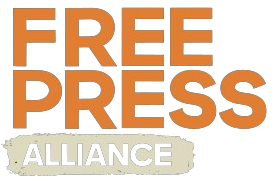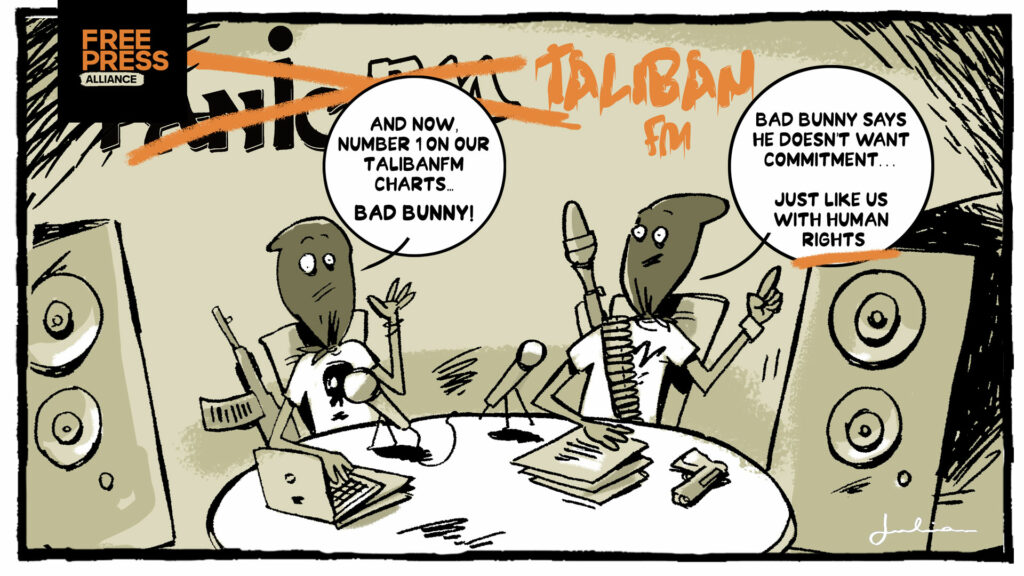A Fragile Landscape for Journalists Amid Escalating Gang Violence
As detailed in our May 2024 article “Impunity and Violence: The Decline of Freedom of the Press in Haiti”, the assassination of President Jovenel Moïse in July 2021 marked a dramatic turning point for press freedom in the country. Since then, gang violence and institutional collapse have created an environment in which journalists operate under constant threat of harassment, abduction, and death.
The situation has only worsened. Gangs now exert significant territorial and political influence, often more than local authorities. As insecurity spreads, so too does the silencing of independent journalism.
A Climate of Fear and Censorship
To report safely, journalists require a secure environment, something that is increasingly elusive in Haiti. Threats, disappearances, assaults, and kidnappings have become common. Since 2021, dozens of media workers have been killed or abducted, many of them while simply doing their jobs.
One recent and alarming case illustrates the depth of this crisis. On April 20, 2025, armed bandits belonging to the Viv Ansanm gang took control of a local radio station in Mirebalais, renaming it “Taliban FM.” The station, formerly known as Radio Panic FM, is now broadcasting gang propaganda.
“They’ve taken control of the radio station, they have their own beatmakers, their own technicians. Several gang members are rappers themselves,” said Joseph Allan Junior, the station’s director, in an interview with the Haitian-Caribbean News Network (HCNN).
These broadcasts now feature gang members calling themselves “the Taliban,” who use the platform to issue messages to displaced residents, even as decomposing bodies from recent massacres reportedly still lie in the streets.
“We are the Taliban, and we rule the city,” one gang member was heard saying live on air.
This seizure of the airwaves signals a new phase in the territorial and media power of Haiti’s criminal groups, reflecting not just a security breakdown but communications one as well.
Kidnappings and Intimidation of Journalists
Kidnappings of journalists have become increasingly common. Journalist Roger Claudy Israël and his brother Marco were released after two weeks in captivity, following the payment of a partial ransom in local currency. Their captors reportedly dropped an initial demand for U.S. dollars, highlighting the transactional nature of this violence. The release was negotiated by SOS Journalists, a local press freedom organization.
However, not all hostages have returned. Frantz Joseph, a close associate of Roger Claudy Israël, remains missing, along with journalist Jean Christophe Collègue and several others. Each unresolved case deepens the climate of fear and undermines confidence in any protective mechanisms for media professionals.
Collapse of State Authority and Impunity
The Committee to Protect Journalists (CPJ) has named Haiti the worst country globally for impunity in journalist killings. At least seven journalist murders remain unsolved since 2019, and no significant progress has been made toward holding perpetrators accountable. This impunity encourages further violence and forces many journalists into self-censorship or exile.
The situation in Mirebalais also underscores the collapse of public authority. With criminal groups controlling physical spaces, information channels, and local populations, Haiti’s remaining institutions legal, civic, and press-related are under extraordinary strain.
International Concern, Local Inaction
International bodies such as the Inter-American Commission on Human Rights (IACHR) and Reporters Without Borders (RSF) have repeatedly condemned attacks on the press in Haiti and called on the government to act. Yet, with the state apparatus weakened or absent in many areas, these calls have so far produced few results.
Conclusion
The deterioration of press freedom in Haiti is not merely a media issue it is a fundamental challenge to democracy and civil society. As gangs assert increasing control over territories and narratives, the space for independent journalism continues to shrink.
From Free Press Alliance, we call on independent journalists and media outlets both in Haiti and around the world to continue reporting on the reality of life on the island. We urge them not to give up in the face of censorship, intimidation, and repression. The Haitian people deserve access to truthful, uncensored information, and their stories must continue to be heard. We stand in solidarity with those who risk their freedom every day to keep the world informed.

